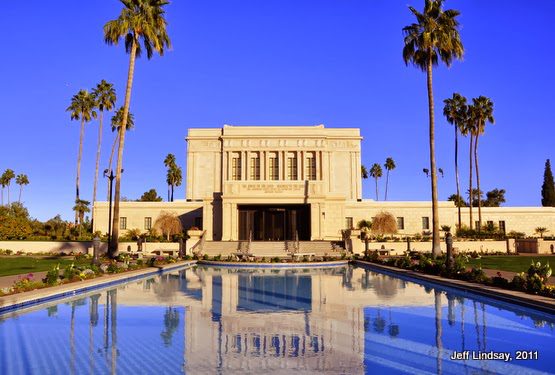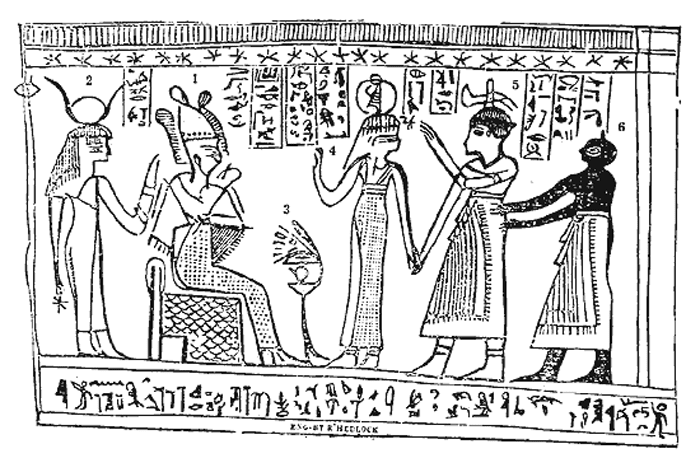The Book of Mosiah begins in a puzzling way relative to the other books before it. For a book that is supposed to be connected to Mosiah, it starts with a reference to King Benjamin, not Mosiah. Further, right before the Book of Mosiah, there is also a strangely sudden transition in the Words of Mormon that also makes reference to King Benjamin. Both the ending of the Words of Mormon and the beginning of the Book of Mosiah seem awkward or unusual. However, recent examination of the manuscripts from the Book of Mormon translation leads to the possibility that both of these awkward sections were affected by the loss of the 116 pages, and in fact, the ending of the Words of Mormon may actually be a fragment from part of the Book of Mosiah, whose opening words are missing.
What is now our beginning of the Book of Mosiah apparently was labeled as Chapter 3 in the original text. Understand the loss and its influence on the text can be meaningful in several ways. See Jack M. Lyon and Kent R. Minson, “When Pages Collide: Dissecting the Words of Mormon,” BYU Studies, 51/4 (2012): 121-136. This is also available at the Scholars Archive at BYU. The authors explore details from the original manuscript and the overall composition of the Book of Mormon, and extract interesting insights that lead to the following conclusions:
Without the benefit of Royal Skousen’s landmark publications on the original Book of Mormon text, scholars have previously described Words of Mormon verses 12–18 as a “bridge” or “transition” that Mormon wrote to connect the record of the small plates with his abridgment from the large plates. Based on the now-available documentary evidence, that analysis can be seen as faulty—an attempt to explain what should never have needed explaining. There is no “bridge” between the small plates and the rest of the Book of Mormon. There is only the Words of Mormon itself (consisting of verses 1–11), where Mormon simply explains why he is including the small plates with the rest of the record.19 The verses that follow (12–18) belong in the book of Mosiah.
So, in conclusion, here is the text of the Words of Mormon and the beginning of Mosiah as it should be (and originally was):
The Words of Mormon
And now I, Mormon, being about to deliver up the record which I have been making into the hands of my son Moroni, behold I have witnessed almost all the destruction of my people, the Nephites. . . .
And they were handed down from king Benjamin, from generation to generation until they have fallen into my hands. And I, Mormon, pray to God that they may be preserved from this time henceforth. And I know that they will be preserved; for there are great things written upon them, out of which my people and their brethren shall be judged at the great and last day, according to the word of God which is written.
[The Book of Mosiah]
[Chapter 1: In lost 116 pages]
[Chapter 2: First part in lost 116 pages]
. . . And now, concerning this king Benjamin—he had somewhat of contentions among his own people. . . .
Wherefore, with the help of these, king Benjamin, by laboring with all the might of his body and the faculty of his whole soul, and also the prophets, did once more establish peace in the land.Chapter 3
And now there was no more contention in all the land of Zarahemla among all the People which belonged to King Benjamin . . .
Unless the original manuscript pages for the Words of Mormon and the beginning of the book of Mosiah someday come to light, we may never know precisely what happened to this text during the translation of the Book of Mormon. However, this paper provides a new explanation of what may have occurred—one that makes sense based on the documentary and textual evidence. This may seem like a small matter, but it could have important ramifications for study and scholarship, and the closer we can get to the original text of the Book of Mormon, the better we will understand the meaning and history of that sacred record.












Weird how a slapdash conglomeration can feel so slapdash sometimes, right?!
Sorry you haven't read the book yet. But it's free, either in print or online, and I hope you'll give it a chance
I once read another bit of information that also suggests that the supposed first chapter of Mosiah isn't the true first chapter:
Mosiah, unlike other large books around it (1 Nephi and Alma, for example), does not have a prefacing paragraph.
I believe the suggestion was that Mosiah probably did have one, as well as two earlier chapters, on the 116 pages; then Mormon inserted the Small Plates of Nephi, added the Words of Mormon, and then continued Mosiah.
I might be off on what the article actually said, as I can't remember where I actually found it, but that's the gist of what I recall.
Wow, thanks for that faith promoting jist, Ramer!
Mormon did not insert the small plates into his abridgement. If he had we have to ask where?
If at the beginning, then Joseph would have started translating at 1 Nephi , not Lehi.
If he placed them in the middle after the book of Lehi (lost through 116 pp) then Joseph would have started at 1 Nephi after losing the 116 pp. Instead, he continues through Mosiah all the way through to Moroni and the title page (last leaf in the abridged record).
Had the small plates been placed at the end, Joseph and Oliver would have continued to 1 Nephi after Moroni/Title page.
Instead they run out of plates to translate and ask the Lord if they should retranslate from the beginning – Book of Lehi).
D&C 10 provides the Lord’s clear instruction to not re-translate but that he would provide other records (small plates) to cover off the same time period.
There are two sets of plates which is also why the various witnesses of the plates described them in different weight and size.
Thanks for the comment, Daniel. From my perspectives, Mormon’s comments in Words of Mormon vv. 3, 6-7 are especially instructive:
3 And now, I speak somewhat concerning that which I have written; for after I had made an abridgment from the plates of Nephi, down to the reign of this king Benjamin, of whom Amaleki spake, I searched among the records which had been delivered into my hands, and I found these plates, which contained this small account of the prophets, from Jacob down to the reign of this king Benjamin, and also many of the words of Nephi….
6 But behold, I shall take these plates, which contain these prophesyings and revelations, and put them with the remainder of my record, for they are choice unto me; and I know they will be choice unto my brethren.
7 And I do this for a wise purpose; for thus it whispereth me, according to the workings of the Spirit of the Lord which is in me. And now, I do not know all things; but the Lord knoweth all things which are to come; wherefore, he worketh in me to do according to his will.
So he has found the small plates and says he will “put them with the remainder of my record, for they are choice unto me” (v. 6), but is not sure why he feels inspired to add them (v. 7). The addition of the small plates, of course, resolved the crisis of the lost 116 pages in a clever way that only made sense to man in retrospect.